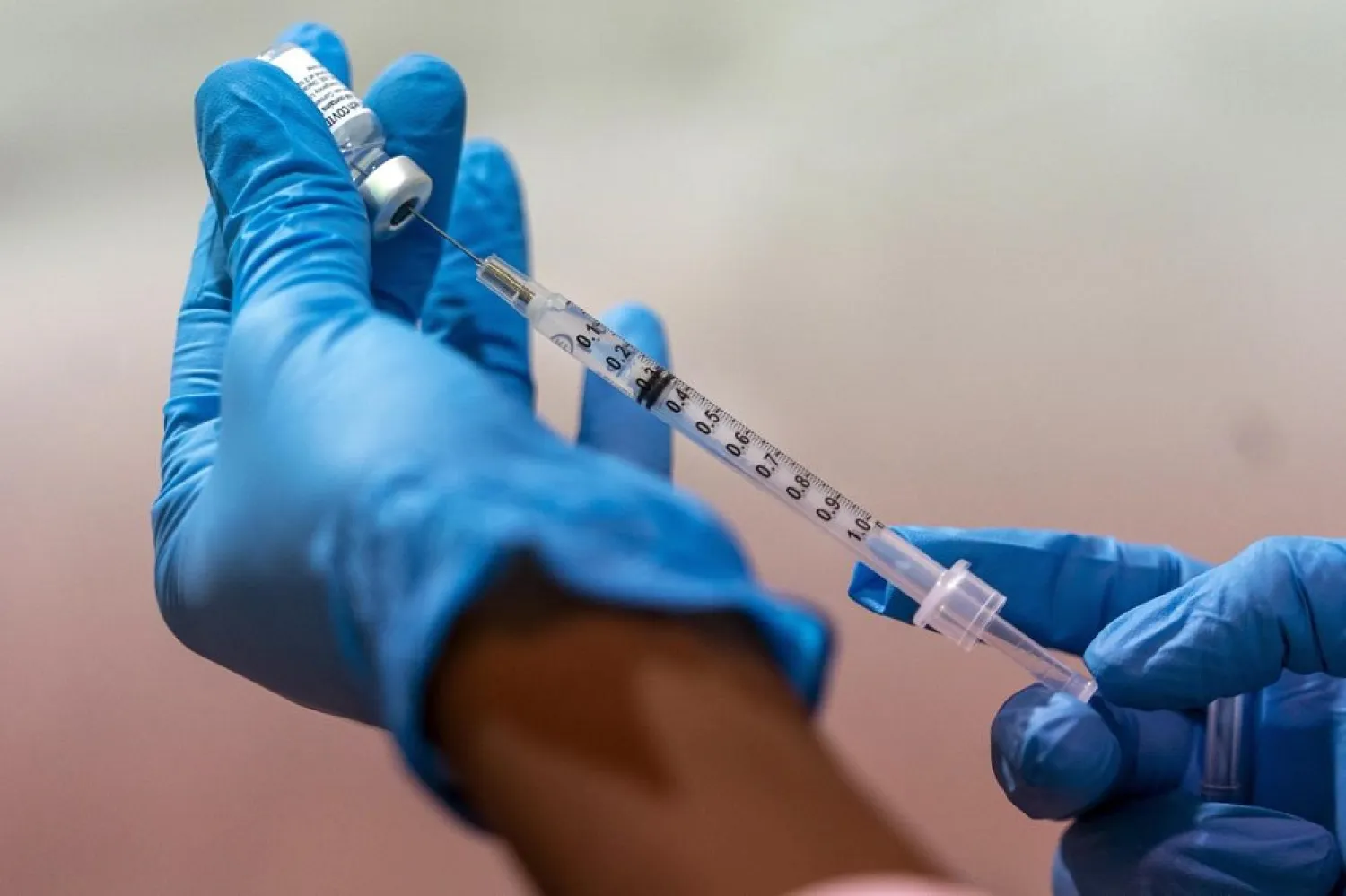An Ethiopian who has lived in Lebanon for more than two decades, Jamal, aged 70, speaks Arabic with a near-native tongue.
But like many migrants, he had no idea that he was entitled to a COVID-19 vaccination under the nation's inoculation drive, and that due to his age, he should be near the front of the queue.
"If I can get it, I definitely want it," said Jamal, who asked not to give his full name, as he scanned an online platform for vaccine pre-registration late last week, before sinking back into his chair in disappointment.
While Lebanon's partly World Bank-financed vaccine program is open to migrants, an ID number is needed for registration - effectively excluding several hundred thousand migrants like Jamal who do not have their papers in order.
Two weeks into an inoculation campaign marred by a row over queue-jumping by lawmakers, officials and human rights groups are concerned that some 500,000 migrants in the nation of six million people could be left out.
Officials have so far secured some 6 million vaccine shots, enough for just under half the population, but outgoing Labor Minister Lamia Yammine said cash-strapped authorities did not have enough funds to vaccinate all of the nation's residents.
"The resources of the Lebanese state are limited even for Lebanese, so as a labor ministry we're going to try to get (funding) from various sources," Yammine, whose ministry oversees migrant workers, told the Thomson Reuters Foundation.
She said employers may be asked to pay for the inoculation of migrant employees, while the embassies of countries with large migrant populations and international organizations could also be asked to chip in.
"We want to find a way to guarantee they all get the vaccine, and especially the undocumented ones," Yammine said, though she acknowledged that migrants without valid residency papers would be unable to get the jab under current regulations.
'Deliberate mismanagement'
Undocumented migrants account for about half of Lebanon's migrant workers, many of whom came to the country long before its 2019 economic meltdown in search of work from countries such as Nigeria, Sudan, Sri Lanka and the Philippines.
Lebanon has also committed to providing COVID-19 vaccines to about 1.2 million Syrian and Palestinian refugees living within its borders in a process being overseen by UN agencies. So far, only a small number of them have been vaccinated.
The vaccine roll-out has been overshadowed by favoritism towards the well-connected, inspiring little confidence that marginalized groups will end up getting the jab, said Farah Baba of local human rights NGO the Anti-Racism Movement.
"Given the corruption and deliberate mismanagement we saw early on in the vaccination drive, we really doubt migrant workers are going to receive it in an equitable or organized manner," she said.
Efforts to get migrant workers vaccinated could be further hindered by the uneasy relationship many migrants have with authorities, who have excluded them from labor law protections under a system rights groups have likened to modern-day slavery.
Migrants consulted by the International Labor Organization (ILO) said they feared registering or even inquiring about the vaccine for fear of detention or deportation, the ILO's Lebanon project coordinator Zeina Mezher said.
Language barriers and widespread vaccine hesitancy may also deter many from being immunized, she said.
Of the two dozen migrant workers consulted by the Thomson Reuters Foundation, only two said they intended to get the vaccine - the rest citing concerns over possible side-effects or the involvement of authorities.
"I'm strong and young ... I don't think (the vaccine) is for me," said Filipina shopkeeper Lala, 33, as she pointed a customer towards dried mangoes in her cluttered store.
Standing on the curb outside, Limal, a 42-year-old from Sri Lanka, said he wanted to get the jab but was uneasy about dealing with official institutions. "There is nothing for us. Only problems from the state."












